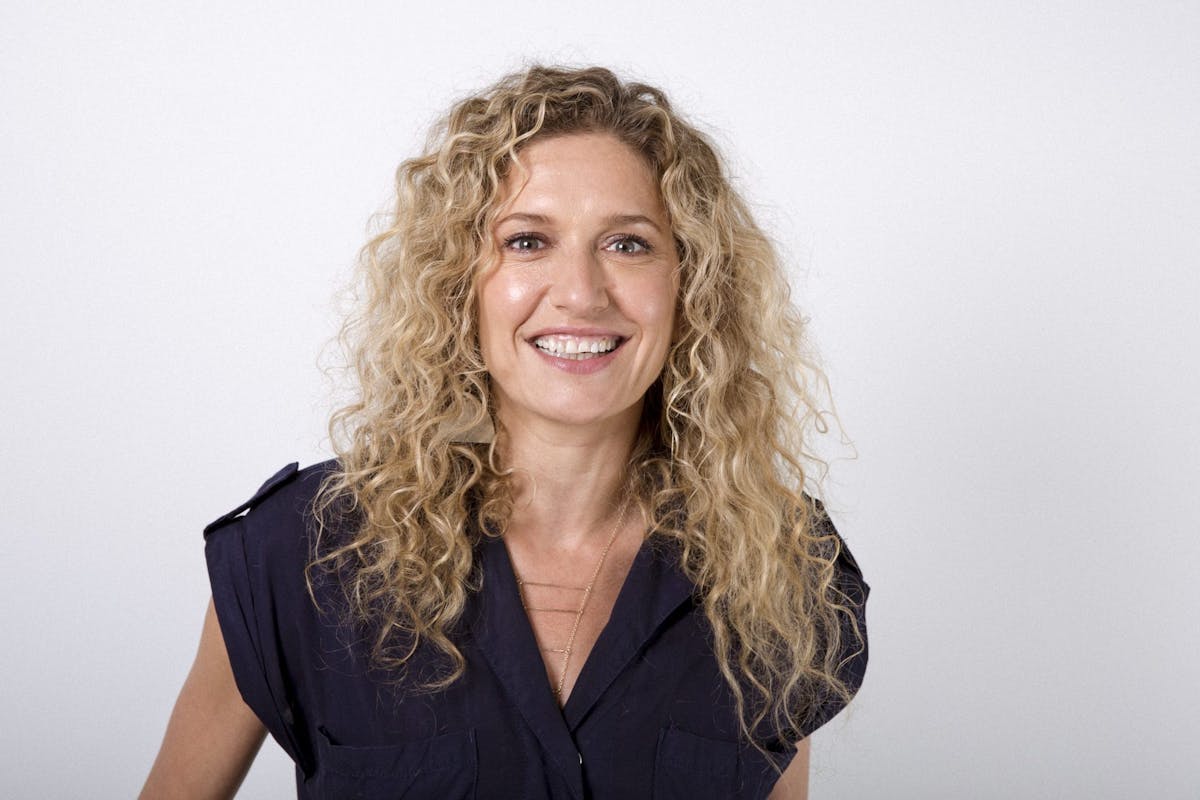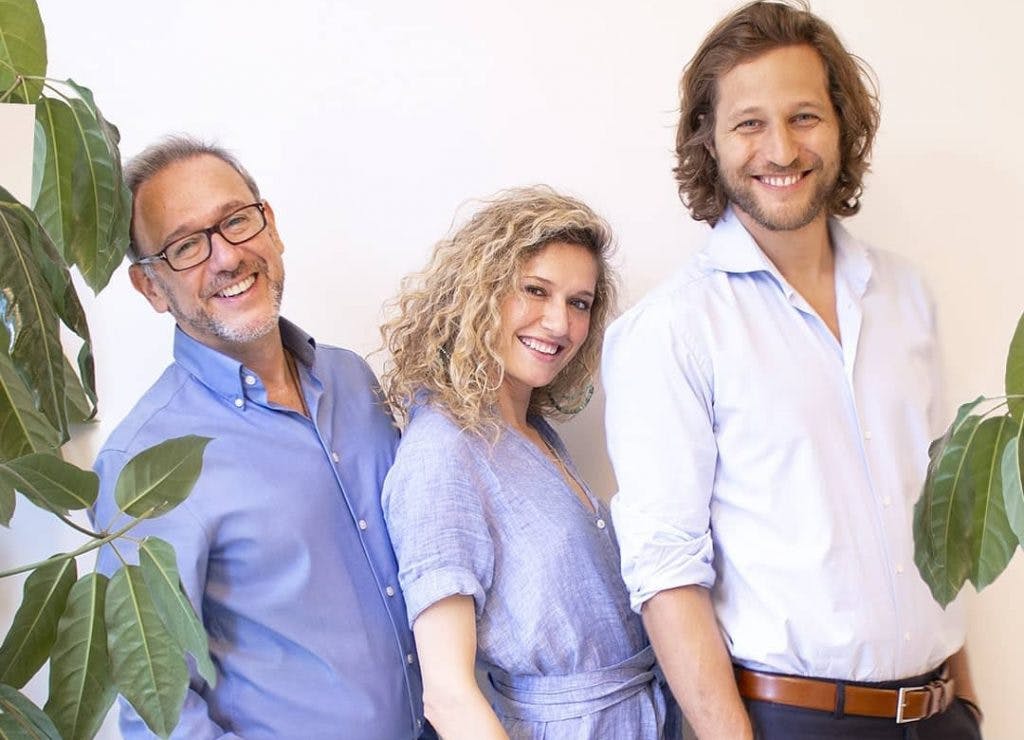Dr. Sophia Kogan, MD, is co-founder and chief medical advisor at Nutrafol. As part of an ongoing effort to raise the conversation around women’s hair thinning and empower women to take charge of their hair health, Dr. Kogan is sharing her experience with stress-related hair thinning. Her struggle as a “depleted,” stressed-out medical resident losing hair by the handfuls led her to co-create the hair wellness solution that she needed as much as millions of others.
Stress Wrecked My Hair — So I Took Control & Created A Solution
The Experts
13 Min Read

Get hair, health, and science news delivered right to your inbox.
Your passion for hair wellness started with a desire to regain your own hair after years of stress-related thinning. What's your hair story?
DR. SOPHIA KOGAN, MD: The first time I experienced hair thinning was from the physical stress of an eating disorder in high school and college. I lost a lot of hair and I don’t think it ever came back the same. Whether it was my eating disorder or the stress of medical school and residency — which was the second time in my life when I experienced hair thinning — every time I saw myself shedding or losing hair quality, it was always during times of extraordinary stress.
How prevalent is stress-related hair thinning in women?
DR. KOGAN: I think it’s underestimated because we often distinguish between types of hair thinning based on definitions provided in medical textbooks. And up until very recently, most physicians thought there was only one type of stress-related hair thinning, telogen effluvium, which is that sudden shedding that happens after a stressful event. But we’re no longer just subject to sudden stresses in life. Our lives, especially women’s lives, have consistent and chronic stress levels.
I truly believe that all hair thinning is multifactorial, so you canhave different root causes and stress will almost always contribute.— Dr. Sophia Kogan, MD
How do you know if you’re chronically stressed?
DR. KOGAN: We tend to think of stress as something like when a boyfriend breaks up with you, or a death of a loved one, or a move, but there’s this underlying chronic stress, or micro-stressors, that add up to a level that is fairly high. That’s where you get changes in cortisol and dysregulation of hormones that are more insidious for your hair.
Can you give an example of a micro-stressor?
DR. KOGAN: A boss yelling at you. Or even that email that comes through and you’re like, ‘Ugh.’ If you start your day with one micro-stressor, and then more keep getting stacked up, you’ll accumulate a ton of stress by the end of the day. And that stress is also cumulative throughout your lifetime.
How did this “stacked-up” stress affect your hair while you were a medical resident?
DR. KOGAN: I remember looking at my hair and thinking, This sucks. But I always downplayed it because I didn’t want to acknowledge it to myself. Then it got so bad that I even thought about getting hair transplants. I was chronically stressed. I was living off primarily canned tuna fish or anything I could find. At times I was working 100 hours a week, sleeping poorly… the training was very rigorous and my body was just depleted. I put my hair on the back burner.
I’ve had to rectify the damage that I did to myself and my hairfrom twenty-something years ago. Your body remembers.— Dr. Sophia Kogan, MD
How did you go from “depleted” to this abundance of curls and co-founding Nutrafol?
DR. KOGAN: I took a pause to really focus on myself and get more into wellness and health. It took time, but with persistence and a conscious effort, I was able to bring myself back into a state of calm.
With me and [Nutrafol co-founders] Roland and Giorgos, fate brought us together. They were like, ‘We’re starting this company,’ and I was on my wellness break and digging into nutrition and botanicals, so I started looking into the science of hair and working with them. That’s when I really started to take care of my hair, and it’s improved so much as a result of creating and committing to Nutrafol.

As a woman in science and co-founder of Nutrafol, how does your personal experience with hair thinning inform your approach?
DR. KOGAN: Helping women has always been my passion. We aren’t told that we might lose our hair at some point because it’s just not something that women talk about. I’ve experienced it myself where I was too ashamed to even bring it up. I would rather have covered it up so it’s not visible even to myself. I want women’s hair thinning to become a non-taboo conversation, because the more people know, the more they can do something about it.
I personally like to speak about hair thinning more boldly and shout it from the rooftops because a part of me is really feminist and I want to be able to say things as they are. Like, why can men talk about it and we can’t? — Dr. Sophia Kogan, MD
“The power to take control” is a mantra at Nutrafol. With stress, can you actually control your cortisol response through lifestyle and supplementation? Or does your body hold all the cards?
DR. KOGAN: There are two elements to this: 1) Yes, in terms of actual studies and scientific knowledge, we understand that people who are doing yoga or meditation can effectively change their neurochemistry, and 2) The same thing goes for the adaptogens, which have been shown in clinical studies to balance cortisol levels over time. The best thing you can do is take control of what you can control in the best way possible. That in itself can help your cortisol levels.
How does Nutrafol use stress adaptogens to support hair growth?
DR. KOGAN: Nutrafol targets stress with the stress adaptogen ashwagandha, which has been shown in clinical studies to balance elevated cortisol levels in chronically stressed adults. Not only has it been used for thousands of years in ayurvedic medicine, it’s also clinically studied. The difference in our ashwagandha is that it’s standardized. We have the technology to take the most important, powerful part of the plant and concentrate it.
Stress adaptogens help balance cortisol levels and improve adaptation or resilience to stress. The idea isn’t to get rid of stress, the idea is to adapt.” — Dr. Sophia Kogan, MD
You designed two options for women: Nutrafol Women and Nutrafol Women’s Balance. Can you explain the difference?
DR. KOGAN: We specifically formulated Women’s Balance for women going through menopause — before, during, and after. What happens is estrogen and progesterone levels decline very suddenly while androgen hormones (testosterone) decrease, but also linger. So we have more saw palmetto in the product, specifically to target those androgen hormones, as well as a beautiful adaptogen called maca to naturally balance sex hormones as they decrease. We also added astaxanthin, because as we age, our antioxidant capacity to fight oxidative stress from the environment, cells, DNA, damage, and things like that really decreases. So we want to boost that capacity.
What message do you have for women struggling with hair thinning?
DR. KOGAN: Having gone through it, I know the emotions that hair thinning brings up in women. You don’t always want to acknowledge it or be shown the truth. But I think once you do see it, it’s much more empowering to take control than to live in denial and shame. I’m just so grateful to be able to help raise this conversation, to offer women an approach that works and that is healthy for them, and, most importantly, to listen to them, because we are in the business of building a community that welcomes you in and connects you with support. No one has to suffer in silence.